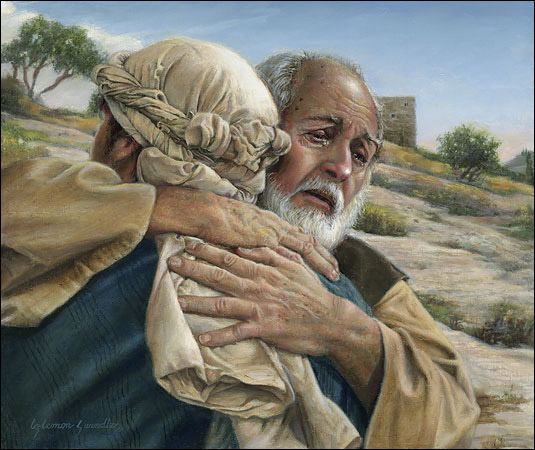 Early morning thoughts. I took a sip of tea, leaned forward and opened the blinds behind the desk. There, in the yellow halo of light from the blazing security light affixed to the wall, three small gray and brown sparrows perched in the entwining branches of the crepe myrtle trees screening the window of my second floor condo. Two had their heads tucked under their wings, demonstrating all the flexibility usually attributed to those of the feline persuasion. The third miniature beauty was occupied with his morning ablutions, pecking his tiny beak atop, behind and under his uplifted snippet of a wing.
Early morning thoughts. I took a sip of tea, leaned forward and opened the blinds behind the desk. There, in the yellow halo of light from the blazing security light affixed to the wall, three small gray and brown sparrows perched in the entwining branches of the crepe myrtle trees screening the window of my second floor condo. Two had their heads tucked under their wings, demonstrating all the flexibility usually attributed to those of the feline persuasion. The third miniature beauty was occupied with his morning ablutions, pecking his tiny beak atop, behind and under his uplifted snippet of a wing.
Beyond and to the sides of this sparrow’s bedroom of light there in the tree branches, darkness was still really dark, stirring, as it always did, tender memories of high school mornings when my father, who arose at five to go to the rock mine, sometimes woke me when I had a paper due or needed an extra hour of piano practice.
“How can that be so many decades ago now?” I wondered. “Thank You, Lord, for those two Scriptures yesterday, that one in Isaiah and in Psalms”.
Even to your old age I am He, and even to hair white with age will I carry you. I have made, and I will bear; yes, I will carry and will save you. (Isaiah 46:4, AMPC)
I will come in the strength and with the mighty acts of the Lord God; I will mention and praise Your righteousness, even Yours alone.
O God, You have taught me from my youth, and hitherto have I declared Your wondrous works.
Yes, even when I am old and gray-headed, O God, forsake me not, [but keep me alive] until I have declared Your mighty strength to [this] generation, and Your might and power to all that are to come. (Psalm 71:16-18, AMPC)
 Coping with problems. I had recently started going to bed earlier so that I could get up earlier for the specific purpose of dividing up time spent sitting at the computer, part of ongoing efforts to keep on with the work of writing despite the recent barrage of age-related challenges like eye strain, stiff joints, fatigue, and on and on.
Coping with problems. I had recently started going to bed earlier so that I could get up earlier for the specific purpose of dividing up time spent sitting at the computer, part of ongoing efforts to keep on with the work of writing despite the recent barrage of age-related challenges like eye strain, stiff joints, fatigue, and on and on.
But today, looking at the sparrows I am richly blessed as the word of God comes to mind, as always bringing truth and therefore peace. The truth is that I am exceedingly blessed, in countless ways. Having a home, food, a car, the freedoms of living in America are things I try to remember to thank God for daily. But I also thank Him for the health He has given and for the wisdom He gives in how to keep going, and even laugh, in spite of the problems associated with old age and white hairs.
So, this morning as I look at the sparrows, I think:
“Finally, I get it Lord . . . there are many sparrows. Many. And I am worth more than many of them, You said. As they simply perch and sleep, and awake and happily chirp the day awake they do not worry how they will do their job of finding food. If one of them is a little older and is feeling stiff, they do not worry.
Two days later. . . I was having a great day, with an unusually long stretch of time to write since it was not only a rest day from exercise but also a day with few other chores to do as well. Most of the morning, I spent happily combining ten or so separate files into one, closing in on the process of getting the book “Undepressed” ready to put on the website, hopefully by the end of this month.
At one, I took an hour’s rest, flat on the bed, part of my self-imposed health habits that help greatly. After a bite of lunch and a quick quiet time, I was debating whether to continue work on compiling files or to return to work on the new book about becoming a believer when a text pinged.
“We have noticed suspicious activity on your account. If you did not authorize the following transaction, text N to this number. . . “
Well, that led to four more text messages, with waits in between each, and then the text “Your debit card has been cancelled due to fraudulent activity. Please see your financial institution or call this number for a new card. . . “
Aaaarrgggghhhhh!
“Just when things are going so well, just when I have some extra time, just when I was in such a good mood. . . “ began the silent fuming.
But, by grace, not for long.
 “I am sorry, Lord. Thank You for catching this attempt at fraud. Thank you that they only got one hundred dollars before the fraud protection system stopped it. Help me redeem this time, Lord. Let there be someone at the credit union that I can witness to. Help me have a good attitude.”
“I am sorry, Lord. Thank You for catching this attempt at fraud. Thank you that they only got one hundred dollars before the fraud protection system stopped it. Help me redeem this time, Lord. Let there be someone at the credit union that I can witness to. Help me have a good attitude.”
Well, there just was no chance to witness to anyone. I got a new card, was given the phone number to call and dispute the fraudulent charges, and advised, which I already knew, that any automatic payments that had been set up on the old card would have to be re-established.
I walked back out into the Texas sun, still highly irked at the loss in time and the loss of the good mood. I had so much I wanted to get done today!
But, as I pulled back into the parking lot and walked to my unit, I realized it had only taken an hour. The credit union was less than two miles from my home, there had been only a short line, and I could probably have the money taken by fraud restored.
How He takes care of sparrows. That’s when I remembered this blog post I had started a couple of days before, and I thought.
“Lord, part of the way you take care of the billions of sparrows in Your world is through protecting them from harm, just like You protected me from financial harm. And those sparrows do not worry or fret about cats or birds of prey or other dangers, once they are passed.”
 I sat back down at my desk and thought about the day and other blessings and protections. I had been up at five to drive someone I love to the hospital for a procedure, where all turned out to be fine, a blessing to that person and to me. On the way home, I had been passed on the interstate by two fire engines and an ambulance, on their way I soon saw as I creeped along in the backed-up traffic, to a bad car accident. Had I not had to wait an hour at the hospital while the check-in snafu got untangled before I left, I might have been in that accident.
I sat back down at my desk and thought about the day and other blessings and protections. I had been up at five to drive someone I love to the hospital for a procedure, where all turned out to be fine, a blessing to that person and to me. On the way home, I had been passed on the interstate by two fire engines and an ambulance, on their way I soon saw as I creeped along in the backed-up traffic, to a bad car accident. Had I not had to wait an hour at the hospital while the check-in snafu got untangled before I left, I might have been in that accident.
“Father, like a child fussing because his papa will not let him cross the street when cars are coming or a child throwing a tantrum because she cannot have a cookie thirty minutes before dinner, I have whined and been mad about delays today. And all the while You have been protecting me. Forgive me, Lord, and show me how to be more grateful for all the hours and hours of time You give me every day and all the blessings You constantly pour out.
Help me truly consider the lilies and the sparrows. Give me the heart of a trusting, non-complaining and grateful child.”
Biblical basis. As ever, I cannot seem to write short blog posts! In looking up the well-known sparrows reference I found that Jesus used the metaphor of sparrows and another time He used ravens and lilies to tell us not to worry. Most of Mattthew 10 contains the instructions of Jesus to His disciples when He was sending them out to minister. He warns them that they will be persecuted and tells them not to worry because they are “worth more than many sparrows” and God cares for every single sparrow.
In Luke 12, Jesus was addressing not only His twelve disciples but a large crowd as well.
22 Then, turning to his disciples, Jesus said, “That is why I tell you not to worry about everyday life—whether you have enough food to eat or enough clothes to wear. 23 For life is more than food, and your body more than clothing. 24 Look at the ravens. They don’t plant or harvest or store food in barns, for God feeds them. And you are far more valuable to him than any birds! 25 Can all your worries add a single moment to your life? 26 And if worry can’t accomplish a little thing like that, what’s the use of worrying over bigger things?
 27 “Look at the lilies and how they grow. They don’t work or make their clothing, yet Solomon in all his glory was not dressed as beautifully as they are. 28 And if God cares so wonderfully for flowers that are here today and thrown into the fire tomorrow, he will certainly care for you. Why do you have so little faith?
27 “Look at the lilies and how they grow. They don’t work or make their clothing, yet Solomon in all his glory was not dressed as beautifully as they are. 28 And if God cares so wonderfully for flowers that are here today and thrown into the fire tomorrow, he will certainly care for you. Why do you have so little faith?
29 “And don’t be concerned about what to eat and what to drink. Don’t worry about such things. 30 These things dominate the thoughts of unbelievers all over the world, but your Father already knows your needs. 31 Seek the Kingdom of God above all else, and he will give you everything you need.
32 “So don’t be afraid, little flock. For it gives your Father great happiness to give you the Kingdom.
33 “Sell your possessions and give to those in need. This will store up treasure for you in heaven! And the purses of heaven never get old or develop holes. Your treasure will be safe; no thief can steal it and no moth can destroy it. 34 Wherever your treasure is, there the desires of your heart will also be.
As Halley’s Bible Handbook notes “Jesus had favorite sayings that He repeated again and again. One of them was about God’s unfailing care for and guidance of His people.” (p. 669).
How gracious God is to bring His Word to our minds again and again, and again, and just when we need it, just as He provides food each day for every sparrow. And part of His daily manna this day, this hour, for this all-too-human human being is this verse:
Casting the whole of your care
…….[all your anxieties, all your worries, all your concerns,
………once and for all] on Him,
…..for
…….He cares for you affectionately and
……………..cares about you watchfully. (I Peter 5:7, AMPC) (emphasis added)
Lord, please keep reminding Your silly child that I am worth more than many sparrows and that You are watching over me, affectionately, every moment of every day!

 27 Behold, the Name of the Lord comes from afar, burning with His anger, and in thick, rising smoke. His lips are full of indignation, and His tongue is like a consuming fire.
27 Behold, the Name of the Lord comes from afar, burning with His anger, and in thick, rising smoke. His lips are full of indignation, and His tongue is like a consuming fire. God used these words, I believe for emphasis, when He spoke through Isaiah in Isaiah 45:18 and said ‘For thus says the Lord—Who created the heavens, God Himself, Who formed the earth and made it, Who established it and did not create it to be a worthless waste; He formed it to be inhabited-I am the Lord, and there is no one else.”
God used these words, I believe for emphasis, when He spoke through Isaiah in Isaiah 45:18 and said ‘For thus says the Lord—Who created the heavens, God Himself, Who formed the earth and made it, Who established it and did not create it to be a worthless waste; He formed it to be inhabited-I am the Lord, and there is no one else.” God is furious when His children are hurt. Think how you feel when your loved one is treated cruelly. Multiply that by a million and you have a faint glimmer of understanding. In Psalm 18, earth trembles and mountains shake because God is angry at the enemy. Such is the power of this One who fights for us when we return to Him. Even when you disobey, even when you fail to regard God “as holy and honor His holy name [by regarding Him as your only hope of safety] (Isaiah 8:13a, AMPC), God is filled with wrath – because it is part of His nature. God hates sin and the destruction it brings whether His children are being attacked because of what we did or whether we are innocent of any guilt or iniquity.
God is furious when His children are hurt. Think how you feel when your loved one is treated cruelly. Multiply that by a million and you have a faint glimmer of understanding. In Psalm 18, earth trembles and mountains shake because God is angry at the enemy. Such is the power of this One who fights for us when we return to Him. Even when you disobey, even when you fail to regard God “as holy and honor His holy name [by regarding Him as your only hope of safety] (Isaiah 8:13a, AMPC), God is filled with wrath – because it is part of His nature. God hates sin and the destruction it brings whether His children are being attacked because of what we did or whether we are innocent of any guilt or iniquity. Look at how David describes how angry God is when God comes to fight for him. “The valleys of the sea were exposed and the foundations of the mountains laid bare, at Your rebuke, O LORD, at the blast of breath from Your nostrils.” (Psalm 18:15, NIV). Job 4:9 says that “those who plow evil and those who sow trouble reap it. At the breath of God they are destroyed; at the blast of His anger they perish.” (NIV)
Look at how David describes how angry God is when God comes to fight for him. “The valleys of the sea were exposed and the foundations of the mountains laid bare, at Your rebuke, O LORD, at the blast of breath from Your nostrils.” (Psalm 18:15, NIV). Job 4:9 says that “those who plow evil and those who sow trouble reap it. At the breath of God they are destroyed; at the blast of His anger they perish.” (NIV) Some commentaries suggest that Isaiah 30:28 refers to the feast of unleavened bread, or Passover, because it was the only feast that began with a night celebration. Some also suggest that Passover was the most important of Jewish feasts. I believe that fits here because I believe God was wanting to give us a picture of how intensely joyful He wants to help us be while He fights for us once we return to trusting Him completely. As you likely know, the Passover feast commemorates Israel’s deliverance from Egypt.
Some commentaries suggest that Isaiah 30:28 refers to the feast of unleavened bread, or Passover, because it was the only feast that began with a night celebration. Some also suggest that Passover was the most important of Jewish feasts. I believe that fits here because I believe God was wanting to give us a picture of how intensely joyful He wants to help us be while He fights for us once we return to trusting Him completely. As you likely know, the Passover feast commemorates Israel’s deliverance from Egypt. This applies whether it is one of the all too frequent pop-up battles of everyday living—the boss criticizes, a large bill arrives, traffic gets snarled—or a long-standing battle where you have to fight weeks, months or years, like an addiction, climbing out of debt, or believing for salvation of loved ones.
This applies whether it is one of the all too frequent pop-up battles of everyday living—the boss criticizes, a large bill arrives, traffic gets snarled—or a long-standing battle where you have to fight weeks, months or years, like an addiction, climbing out of debt, or believing for salvation of loved ones. Through His Spirit, He has come to live in me, so I have access to all that I need, and He has given me His Word as a shield and a weapon. If I love and serve Him whole-heartedly, with all my strength and soul and might, He declares me righteous, or in right standing, with Him and He helps me resist and overcome the enemy and live a holy life as well as a peaceful, joyful one.
Through His Spirit, He has come to live in me, so I have access to all that I need, and He has given me His Word as a shield and a weapon. If I love and serve Him whole-heartedly, with all my strength and soul and might, He declares me righteous, or in right standing, with Him and He helps me resist and overcome the enemy and live a holy life as well as a peaceful, joyful one.
 Then I looked at the construction crew. Two men were using huge push brooms to smooth out the fresh asphalt. They all had long sleeve shirts and long pants on, a phenomenon I had thought peculiar when I first came to Texas ten years ago from Florida. I had learned since that people wear long sleeves because the Texas sun is more vicious than the Florida sun which passes through softening, highly humid air.
Then I looked at the construction crew. Two men were using huge push brooms to smooth out the fresh asphalt. They all had long sleeve shirts and long pants on, a phenomenon I had thought peculiar when I first came to Texas ten years ago from Florida. I had learned since that people wear long sleeves because the Texas sun is more vicious than the Florida sun which passes through softening, highly humid air. 25. “And upon every high mountain and every high hill there will be brooks and streams of water in the day of the great slaughter [the day of the Lord], when the towers fall [and all His enemies are destroyed.]. Notice the “and”, which connects the blessings in Verse 25 with those that came before. And. . . in that day we will have all the water we need – everywhere we turn. Brooks and streams are both bodies of running water, but brooks are smaller, generally shorter and often found in rugged terrain. An area with brooks flowing through its nooks and crannies makes life far easier for humans and livestock alike than an area with only one stream, which is actually a small river. Water represents Holy Spirit, our Living Water (Jeremiah 2:13.) When we trust God, we have an abundance of Him to satisfy our thirst (1 Corinthians 12:13). We have an abundance of Him everywhere—even in the difficult to traverse places where refreshment seems unlikely, those nooks and crannies of everyday life and those painful, hard to get through moments. And we do not have to wat while we travel to get this water.
25. “And upon every high mountain and every high hill there will be brooks and streams of water in the day of the great slaughter [the day of the Lord], when the towers fall [and all His enemies are destroyed.]. Notice the “and”, which connects the blessings in Verse 25 with those that came before. And. . . in that day we will have all the water we need – everywhere we turn. Brooks and streams are both bodies of running water, but brooks are smaller, generally shorter and often found in rugged terrain. An area with brooks flowing through its nooks and crannies makes life far easier for humans and livestock alike than an area with only one stream, which is actually a small river. Water represents Holy Spirit, our Living Water (Jeremiah 2:13.) When we trust God, we have an abundance of Him to satisfy our thirst (1 Corinthians 12:13). We have an abundance of Him everywhere—even in the difficult to traverse places where refreshment seems unlikely, those nooks and crannies of everyday life and those painful, hard to get through moments. And we do not have to wat while we travel to get this water. godly way, and directs life according to the Word of God, as in 1 John 1:7). In our verse, Isaiah 30:26, I believe light means God’s guidance for us when we are fully trusting and obeying Him. We see here that even in our dark times and situations, in the night seasons of our life, God will provide clear guidance for us because the light we have in our darkness (our moon in those times, so to speak) will be as bright as day. Furthermore, in the other times of our life, we will have guidance so clear that it will be like the sunshine of seven days concentrated into one. Now, that’s clear guidance!
godly way, and directs life according to the Word of God, as in 1 John 1:7). In our verse, Isaiah 30:26, I believe light means God’s guidance for us when we are fully trusting and obeying Him. We see here that even in our dark times and situations, in the night seasons of our life, God will provide clear guidance for us because the light we have in our darkness (our moon in those times, so to speak) will be as bright as day. Furthermore, in the other times of our life, we will have guidance so clear that it will be like the sunshine of seven days concentrated into one. Now, that’s clear guidance! I also saw in my Bible where I had drawn arrows from one phrase to the next, indicating that because God opposes the proud but gives grace to the humble, that we are to humble ourselves before God so that we are in the position for Him to lift us up, in due time. We are also to cast all our worries, anxieties and concerns on God, to control ourselves, keep watching alertly for our enemy, and resist him at the onset because our fellow believers around the world are having the same kinds of sufferings we are having. And God will, after we have suffered a little while, restore us and make us strong, firm and steadfast. (I Peter 5:5-11).
I also saw in my Bible where I had drawn arrows from one phrase to the next, indicating that because God opposes the proud but gives grace to the humble, that we are to humble ourselves before God so that we are in the position for Him to lift us up, in due time. We are also to cast all our worries, anxieties and concerns on God, to control ourselves, keep watching alertly for our enemy, and resist him at the onset because our fellow believers around the world are having the same kinds of sufferings we are having. And God will, after we have suffered a little while, restore us and make us strong, firm and steadfast. (I Peter 5:5-11). Thank You that, though this might not be a serious thing to some people it is desperately serious and hard for me and I know You are busying Yourself with this detail of my life. I know Your eyes are on me and Your ears are open to my cries for help. I know You will never, no never, no never fail me or forsake me or relax Your grip on me. I know nothing, nothing, nothing is too hard for You. I know You are with me. I know You put my every tear in a bottle. I know You are with me wherever I go and that You keep careful watch over me. I know You will always help me. I know You will always guide every step I take as I keep trusting You and following You. I know You will keep guiding me. I know, Lord, that. . .
Thank You that, though this might not be a serious thing to some people it is desperately serious and hard for me and I know You are busying Yourself with this detail of my life. I know Your eyes are on me and Your ears are open to my cries for help. I know You will never, no never, no never fail me or forsake me or relax Your grip on me. I know nothing, nothing, nothing is too hard for You. I know You are with me. I know You put my every tear in a bottle. I know You are with me wherever I go and that You keep careful watch over me. I know You will always help me. I know You will always guide every step I take as I keep trusting You and following You. I know You will keep guiding me. I know, Lord, that. . . Then Isaiah says their sorrows will cease because God will surely be gracious to them. Here in verse 19, he repeats the word gracious from verse 18 (“And therefore the Lord [earnestly] waits [expecting, looking, and longing] to be gracious to you.”) The word gracious reminds us of a host or hostess, someone who kindly, generously gives us the best of their home, their best chair, their best food and drink and entertainment. It speaks of someone who has gone out of their way to prepare good things specifically for us. The root word of gracious is, of course, grace.
Then Isaiah says their sorrows will cease because God will surely be gracious to them. Here in verse 19, he repeats the word gracious from verse 18 (“And therefore the Lord [earnestly] waits [expecting, looking, and longing] to be gracious to you.”) The word gracious reminds us of a host or hostess, someone who kindly, generously gives us the best of their home, their best chair, their best food and drink and entertainment. It speaks of someone who has gone out of their way to prepare good things specifically for us. The root word of gracious is, of course, grace. [v. 20-a] And though the Lord gives you the bread of adversity and the water of affliction. . . This verse clearly tells us that God sometimes sends adversity and affliction to us. Sometimes, trials and troubles come to train us (Hebrews 12, James 1) but sometimes we bring them on ourselves by our rebellion. When we err, God lovingly corrects us because He loves us. And sometimes that correction is painful. This is a fact of the believer’s life and one we must accept, gratefully. It is stated in the Bible in words, in principles, and in stories.
[v. 20-a] And though the Lord gives you the bread of adversity and the water of affliction. . . This verse clearly tells us that God sometimes sends adversity and affliction to us. Sometimes, trials and troubles come to train us (Hebrews 12, James 1) but sometimes we bring them on ourselves by our rebellion. When we err, God lovingly corrects us because He loves us. And sometimes that correction is painful. This is a fact of the believer’s life and one we must accept, gratefully. It is stated in the Bible in words, in principles, and in stories. Such a one is blessed in the best way possible by having the friendship and closeness of the Lord. Psalm 25:14 in the AMPC says “The secret [of the sweet, satisfying companionship] of the Lord have they who fear (revere and worship) Him, and He will show them His covenant and reveal to them its [deep, inner] meaning.”
Such a one is blessed in the best way possible by having the friendship and closeness of the Lord. Psalm 25:14 in the AMPC says “The secret [of the sweet, satisfying companionship] of the Lord have they who fear (revere and worship) Him, and He will show them His covenant and reveal to them its [deep, inner] meaning.”
 And therefore the Lord [earnestly] waits [expecting, looking, and longing] to be gracious to you; and therefore He lifts Himself up, that He may have mercy on you and show loving-kindness to you. For the Lord is a God of justice. Blessed (happy, fortunate, to be envied) are all those who [earnestly] wait for Him, who expect and look and long for Him [for His victory, His favor, His love, His peace, His joy, and His matchless, unbroken companionship]! (Isaiah 30:18, AMPC, emphasis added)
And therefore the Lord [earnestly] waits [expecting, looking, and longing] to be gracious to you; and therefore He lifts Himself up, that He may have mercy on you and show loving-kindness to you. For the Lord is a God of justice. Blessed (happy, fortunate, to be envied) are all those who [earnestly] wait for Him, who expect and look and long for Him [for His victory, His favor, His love, His peace, His joy, and His matchless, unbroken companionship]! (Isaiah 30:18, AMPC, emphasis added) . . . who [earnestly] wait for Him]
. . . who [earnestly] wait for Him]  I ask you, is anything on earth sweeter than the face of a young boy offering a gift? Such earnestness, such whole-hearted sincerity, such clear and pure love enlightening features as yet largely indistinguishable from those of a girl, brow ridge not yet formed, brows not yet thickened, jaw as yet unsquared, chin as yet not more noticeably protruding. And the eyes, those windows to the soul, so filled with light, with joy, with sincerity.
I ask you, is anything on earth sweeter than the face of a young boy offering a gift? Such earnestness, such whole-hearted sincerity, such clear and pure love enlightening features as yet largely indistinguishable from those of a girl, brow ridge not yet formed, brows not yet thickened, jaw as yet unsquared, chin as yet not more noticeably protruding. And the eyes, those windows to the soul, so filled with light, with joy, with sincerity. And what are we to earnestly do? Wait for Him. That means obey and then wait, with confident expectation, for Him to deliver, bless and guide as He promises. In Isaiah 30, Israel sinned by relying on the help of Egypt against their enemies and refusing to “hear the law and instruction of the Lord.” Part of God’s laws and instructions to them was verse 15 when He said, “In returning [to Me] and resting [in Me] you shall be saved; in quietness and in [trusting] confidence shall be your strength.” But Israel’s actions told God “Get out of my way! I do not want to hear about the Holy One of Israel!” We do the same when, in trying to solve a problem, we disobey God. We also do the same when we let worry or fear or other wrong emotions dominate us, rather than waiting on God to act while we rest our souls, quietly and confidently, in Him.
And what are we to earnestly do? Wait for Him. That means obey and then wait, with confident expectation, for Him to deliver, bless and guide as He promises. In Isaiah 30, Israel sinned by relying on the help of Egypt against their enemies and refusing to “hear the law and instruction of the Lord.” Part of God’s laws and instructions to them was verse 15 when He said, “In returning [to Me] and resting [in Me] you shall be saved; in quietness and in [trusting] confidence shall be your strength.” But Israel’s actions told God “Get out of my way! I do not want to hear about the Holy One of Israel!” We do the same when, in trying to solve a problem, we disobey God. We also do the same when we let worry or fear or other wrong emotions dominate us, rather than waiting on God to act while we rest our souls, quietly and confidently, in Him. “Could we with ink the ocean fill,
“Could we with ink the ocean fill, You may have seen this picture of Jesus holding a lamb close to His face. I have two framed prints of it in my two-bedroom condo. I can never glance quickly at it. What an anointing must have been on the artist! Notice that Jesus has pulled that little lamb close to His face. Can’t you feel Him gently pressing His cheek into that fluffy fleece, like a parent clasping a child or lover embracing lover? See the fingers of the nail-scarred hand spread wide, tenderly supporting and holding the lamb securely. See the eyes of the Good Shepherd, closed by the intensity of joy and pleasure flooding through Him. That is how God feels about you, this moment, no matter your situation.
You may have seen this picture of Jesus holding a lamb close to His face. I have two framed prints of it in my two-bedroom condo. I can never glance quickly at it. What an anointing must have been on the artist! Notice that Jesus has pulled that little lamb close to His face. Can’t you feel Him gently pressing His cheek into that fluffy fleece, like a parent clasping a child or lover embracing lover? See the fingers of the nail-scarred hand spread wide, tenderly supporting and holding the lamb securely. See the eyes of the Good Shepherd, closed by the intensity of joy and pleasure flooding through Him. That is how God feels about you, this moment, no matter your situation.
 So the Lord must wait for you to come to Him
So the Lord must wait for you to come to Him Do you see how God explains why? Analyzing a passage of Scripture to uncover the reasons God does something is instructive and motivating. Go back and notice each therefore, for and yet in Isaiah 30:1-17 in the AMPC. God is telling Israel, and us, clearly that when we depend on and seek worldly things more than Him, that that worldly thing will bring us shame, humiliation and confusion. Why? Because the help of the world is worthless. God commanded Isaiah to write that message down as a lesson forevermore. Why? Verse 9 says because we are rebellious and will not hear His law and instruction, because we say by our conduct that we want to hear “smooth things”, that we do not want to hear about God’s holiness.
Do you see how God explains why? Analyzing a passage of Scripture to uncover the reasons God does something is instructive and motivating. Go back and notice each therefore, for and yet in Isaiah 30:1-17 in the AMPC. God is telling Israel, and us, clearly that when we depend on and seek worldly things more than Him, that that worldly thing will bring us shame, humiliation and confusion. Why? Because the help of the world is worthless. God commanded Isaiah to write that message down as a lesson forevermore. Why? Verse 9 says because we are rebellious and will not hear His law and instruction, because we say by our conduct that we want to hear “smooth things”, that we do not want to hear about God’s holiness. For the Lord is a God of justice. Keeping the story of the prodigal son in mind helps me understand this phrase. We know God is just, which means He acts fairly. He does what is proper and orderly. He gives what is due. Yet we also know He is merciful and kind and that His mercy and loving-kindness endure forever. Recall that Psalm 136 has this statement in each of its 26 verses that describe God’s mercy and loving-kindness toward us, from the time of creation to the time the psalm was written.
For the Lord is a God of justice. Keeping the story of the prodigal son in mind helps me understand this phrase. We know God is just, which means He acts fairly. He does what is proper and orderly. He gives what is due. Yet we also know He is merciful and kind and that His mercy and loving-kindness endure forever. Recall that Psalm 136 has this statement in each of its 26 verses that describe God’s mercy and loving-kindness toward us, from the time of creation to the time the psalm was written.&ehk=dJEg3IHUrLAMfTDasovVlckTTv9Xcvd4hrzV%2fHSvqmg%3d&risl=&pid=ImgRaw&r=0)
 Isaiah 30:10-11. Now consider verses 10 through 11.
Isaiah 30:10-11. Now consider verses 10 through 11. Rebellion—idol worship–takes many forms. As we walk with God, He requires more of us and rebellion, which is to say idol worship, becomes harder to detect. It is easy to let our desires—which we can inaccurately perceive as needs—deceive us into putting something before God.
Rebellion—idol worship–takes many forms. As we walk with God, He requires more of us and rebellion, which is to say idol worship, becomes harder to detect. It is easy to let our desires—which we can inaccurately perceive as needs—deceive us into putting something before God. And therefore the Lord [earnestly] waits [expecting, looking, and longing] to be gracious to you; and therefore He lifts Himself up, that He may have mercy on you and show loving-kindness to you. For the Lord is a God of justice.
And therefore the Lord [earnestly] waits [expecting, looking, and longing] to be gracious to you; and therefore He lifts Himself up, that He may have mercy on you and show loving-kindness to you. For the Lord is a God of justice. Webster’s then quotes “Little children, keep yourselves from idols (1 John 5:1)” and further states “An idol is anything which usurps the place of God in the hearts of his rational creatures.” (Can you see why this is an excellent dictionary to use for your Bible study?)
Webster’s then quotes “Little children, keep yourselves from idols (1 John 5:1)” and further states “An idol is anything which usurps the place of God in the hearts of his rational creatures.” (Can you see why this is an excellent dictionary to use for your Bible study?)
 Woe to the rebellious children, says the Lord, who take counsel and carry out a plan, but not Mine, and who make a league and pour out a drink offering, but not of My Spirit, thus adding sin to sin; Who set out to go down into Egypt, and have not asked Me—to flee to the stronghold of Pharaoh and to strengthen themselves in his strength and to trust in the shadow of Egypt!
Woe to the rebellious children, says the Lord, who take counsel and carry out a plan, but not Mine, and who make a league and pour out a drink offering, but not of My Spirit, thus adding sin to sin; Who set out to go down into Egypt, and have not asked Me—to flee to the stronghold of Pharaoh and to strengthen themselves in his strength and to trust in the shadow of Egypt! Wicked King Ahaz, as other kings had done, took the treasures of the Temple and the palace, loaded them on camels and donkeys and sent them across the desert to buy help from Egypt. The Enduring Word commentary observes that Isaiah felt sorry for the beasts of burden because they were carrying such heavy loads of treasures across the fiercely hot and dangerous dessert and it was all for nothing – because the help of Egypt was worthless and would do no good.
Wicked King Ahaz, as other kings had done, took the treasures of the Temple and the palace, loaded them on camels and donkeys and sent them across the desert to buy help from Egypt. The Enduring Word commentary observes that Isaiah felt sorry for the beasts of burden because they were carrying such heavy loads of treasures across the fiercely hot and dangerous dessert and it was all for nothing – because the help of Egypt was worthless and would do no good.